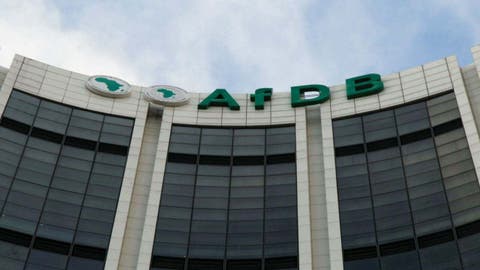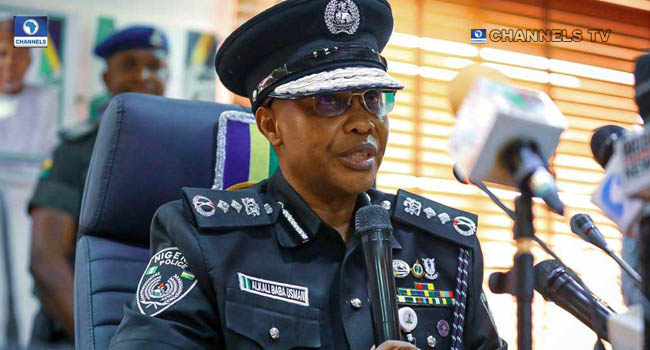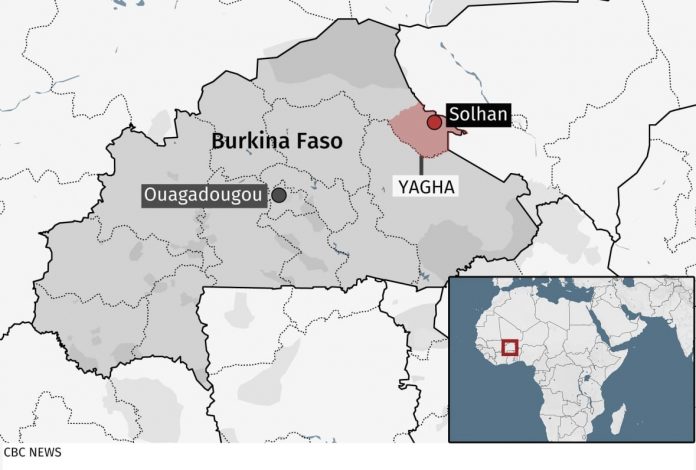The Board of Directors of the African Development Bank (AfDB) has approved a $288.5 million loan to help Nigeria tackle the COVID-19 pandemic and mitigate its impact on people and businesses. The loan is expected to bolster the federal government’s plans to improve surveillance and response to COVID-19 emergencies, ease the effect on workers and businesses, and strengthen the social protection system.

AfDB Approves $288.5m to Support Nigeria’s COVID-19 Fight
Obinna Chima
The Board of Directors of the African Development Bank (AfDB) has approved a $288.5 million loan to help Nigeria tackle the COVID-19 pandemic and mitigate its impact on people and businesses. The loan is expected to bolster the federal government’s plans to improve surveillance and response to COVID-19 emergencies, ease the effect on workers and businesses, and strengthen the social protection system.
The country had in April secured $3.4 billion from the International Monetary Fund (IMF) in emergency financial assistance under the fund’s Rapid Financing Instrument (RFI) to support efforts to address the severe economic effect of the COVID-19 shock and the drastic fall in oil prices.
According to a statement from the Abidjan-based bank yesterday, Nigeria, Africa’s most populous country and the continent’s largest oil producer, is facing twin crises – a health epidemic caused by COVID-19, and an economic crunch largely occasioned by a global oil price plunge.

AfDB Approves $288.5m to Support Nigeria’s COVID-19 Fight
Obinna Chima
The Board of Directors of the African Development Bank (AfDB) has approved a $288.5 million loan to help Nigeria tackle the COVID-19 pandemic and mitigate its impact on people and businesses. The loan is expected to bolster the federal government’s plans to improve surveillance and response to COVID-19 emergencies, ease the effect on workers and businesses, and strengthen the social protection system.
The country had in April secured $3.4 billion from the International Monetary Fund (IMF) in emergency financial assistance under the fund’s Rapid Financing Instrument (RFI) to support efforts to address the severe economic effect of the COVID-19 shock and the drastic fall in oil prices.
According to a statement from the Abidjan-based bank yesterday, Nigeria, Africa’s most populous country and the continent’s largest oil producer, is facing twin crises – a health epidemic caused by COVID-19, and an economic crunch largely occasioned by a global oil price plunge.
As of June 5, the country reported 11,516 coronavirus cases, 3,535 recoveries, and 323 deaths.
The loan is AfDB’s initial response to help mitigate the slump in oil prices and its impact on the economy.
Senior Director of the African Development Bank for Nigeria, Ebrima Faal, said, “About 40.1 per cent of Nigerians live below the poverty line of $1.90 per day and it is feared that the fall in household income during the pandemic will result in wealth deterioration for both the formal and informal sector workers.
“The proposed programme will ensure that the fiscal position and the economy are sufficiently supported to weather the COVID-19 shocks, thereby limiting its potential adverse impact on livelihoods and the economy more generally.”
Prior to the COVID-19 outbreak, Nigeria’s economy was projected to grow by 2.9 per cent of Gross Domestic Product in 2020 and further expand by 3.3 per cent in 2021.
But the statement noted that with the advent of the pandemic and the slump in crude prices, the economy was expected to shrink by between 4.4 per cent, under a conservative baseline scenario, and 7.2 per cent, should the pandemic persist to end-2020.
Faal said beyond Nigeria’s immediate economic recovery needs, the bank and other development partners would dialogue with the government on proposals for medium-term structural reforms to diversify and boost domestic revenues away from the oil sector.
“The Bank has instituted strong fiduci
ary measures to monitor the use of COVID-19 funds, and will maintain dialogue, particularly with the Office of the Auditor General in Nigeria, to ensure adherence to the transparency and accountability of the funds,” Faal added.

AfDB Approves $288.5m to Support Nigeria’s COVID-19 Fight
Obinna Chima
The Board of Directors of the African Development Bank (AfDB) has approved a $288.5 million loan to help Nigeria tackle the COVID-19 pandemic and mitigate its impact on people and businesses. The loan is expected to bolster the federal government’s plans to improve surveillance and response to COVID-19 emergencies, ease the effect on workers and businesses, and strengthen the social protection system.
The country had in April secured $3.4 billion from the International Monetary Fund (IMF) in emergency financial assistance under the fund’s Rapid Financing Instrument (RFI) to support efforts to address the severe economic effect of the COVID-19 shock and the drastic fall in oil prices.
According to a statement from the Abidjan-based bank yesterday, Nigeria, Africa’s most populous country and the continent’s largest oil producer, is facing twin crises – a health epidemic caused by COVID-19, and an economic crunch largely occasioned by a global oil price plunge.
As of June 5, the country reported 11,516 coronavirus cases, 3,535 recoveries, and 323 deaths.
The loan is AfDB’s initial response to help mitigate the slump in oil prices and its impact on the economy.
Senior Director of the African Development Bank for Nigeria, Ebrima Faal, said, “About 40.1 per cent of Nigerians live below the poverty line of $1.90 per day and it is feared that the fall in household income during the pandemic will result in wealth deterioration for both the formal and informal sector workers.
“The proposed programme will ensure that the fiscal position and the economy are sufficiently supported to weather the COVID-19 shocks, thereby limiting its potential adverse impact on livelihoods and the economy more generally.”
Prior to the COVID-19 outbreak, Nigeria’s economy was projected to grow by 2.9 per cent of Gross Domestic Product in 2020 and further expand by 3.3 per cent in 2021.





But the statement noted that with the advent of the pandemic and the slump in crude prices, the economy was expected to shrink by between 4.4 per cent, under a conservative baseline scenario, and 7.2 per cent, should the pandemic persist to end-2020.
Faal said beyond Nigeria’s immediate economic recovery needs, the bank and other development partners would dialogue with the government on proposals for medium-term structural reforms to diversify and boost domestic revenues away from the oil sector.
“The Bank has instituted strong fiduci
ary measures to monitor the use of COVID-19 funds, and will maintain dialogue, particularly with the Office of the Auditor General in Nigeria, to ensure adherence to the transparency and accountability of the funds,” Faal added.
The bank’s intervention aligns with its COVID-19 Response Facility (CRF); Ten-Year Strategy (2013-2022); and High 5 priorities, especially, to “Improve the quality of life for the people of Africa”.
It is also consistent with the second strategic pillar of the recently approved Bank’s Country Strategy Paper 2020-2024 for Nigeria.
In a related development, the Board of Directors of the AfDB approved Nigeria’s Country Strategy Paper (CSP) 2020-2024, which builds on the successes and challenges of the 2013-2019 edition, and incorporates emerging developmental realities and opportunities shaping Nigeria’s political and economic landscape, including in the post-COVID-19 period.
The multilateral institution explained in a separate statement obtained yesterday that the approval was made on May 27.
Faal re-affirmed the institution’s support for Nigeria’s socio-economic advancement.
He said, “In the implementation of the CSP, the Bank will also support Nigeria to address economic shocks associated with the COVID-19 pandemic and oil price shocks by focusing our interventions in sectors that will strengthen public health infrastructure and accelerate efforts towards economic transformation and diversification of export earnings and fiscal revenues from oil.”
The 2020-2024 CSP identifies supporting infrastructure development and promoting social inclusion through agribusiness and skills development as key priority areas for Nigeria. It states that the priorities are selected to leverage Nigeria’s rich endowment of natural and human resources toward transforming the lives of its people.
Faal explained, “It is in this context that the new CSP has been customised to support government efforts in confronting challenges and to foster long-term, socially inclusive development.
“Under the CSP, the Bank will deploy a combination of sovereign and non-sovereign financing instruments to support the two priority areas, including investment and institutional support projects, evidence based analytical work in numerous economic sectors, policy dialogue and provision of advisory services.
“Special focus will be put on supporting the Nigerian private sector, in terms of financing and advisory services, and on Public-Private-Partnership (PPP) initiatives that enable innovative, long-term investment in energy, transport and water and sanitation.”
According to him, the strategy paper is the result of participatory consultations with a range of key stakeholders, both state and non-state actors, as well as bilateral and multilateral development partners.
As of December 2019, the bank group’s active portfolio in Nigeria comprised 61 operations, with a total commitment of about $5 billion. Of the total active operations, 29 were in the public sector, with a commitment of $2 billion (43 per cent) and 32 non-sovereign operations with a total commitment of $3 billion, equivalent to 57 per cent









